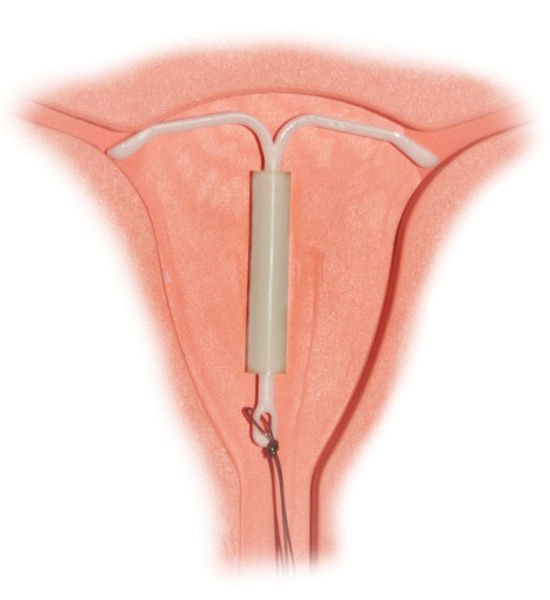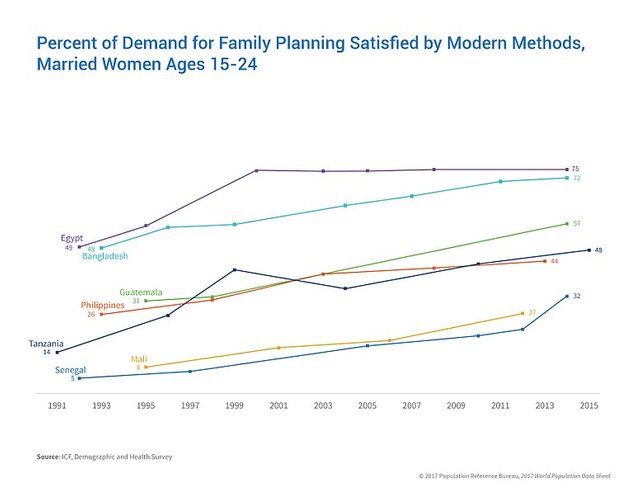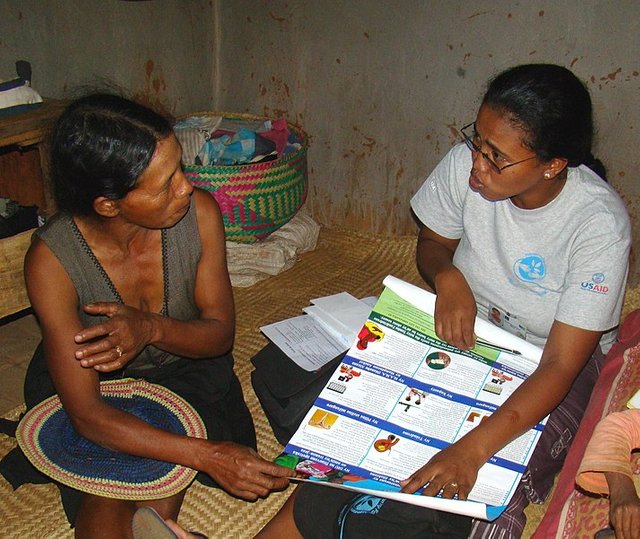This post was initiated as a result of a question asked by @drigweeu on the Episode 5 of the "Ask any Medical Questions" usually anchored by Dr.@omaqiin on the air-clinic platform. Drigweeu asked and i quote;
I have one personal question. Just Personal. Pease, what is the best method of family planning? I mean, the best? source
After much consultation, in addition to my experience while working in the family planning unit of an hospital, I deemed it fit to shed more light on the subject matter in order to allow more people to have access to this information.
I therefore, present to you the details of the available birth control/contraceptive use/family planning types; however, you should be able to make a better decision on the choices suitable for yourself (if you're a female) or for your wife (if you're a male) or better still together as couples.
There are several methods of birth control/family planning, and it is possible there is/are a/some method(s) that may have emerged that I am not familiar with (scientist work day in day out for new effective methods), I will therefore, share with us the ones that have been widely used. In each method, I have tried to explain how it works, how effective it is, side efects or complications likely to occur and my advice before you choose a particular method.
1. Contraceptive Implants (CI)
This involves the insertion of one or two small rods or capsules under a woman’s upper arm. The long-acting reversible contraception slowly releases a female hormone known as the progesterone thereby preventing ovulation. This method is very effective for 3 to 5 years, depending on which implant was used. source. It has an advantage of being used at any age and whether or not a woman has had children. It is not in any way harmful and very safe for breastfeeding mothers.
Also, it is a reversible method of birth control as you can have a trained provider take out the implants at any time after which you will be able to get pregnant without any delay. However, some women may experience irregular periods such as a longer or shorter monthly flow of period. Unexpected light bleeding or spotting may also occur, or monthly bleeding may even stop. You need to give your physician the feedback of any strange side effect for necessary precautions.
2. IntraUterine Device (IUD)
Intrauterine device is a small, flexible device with either copper or hormone placed inside a woman’s womb.

Mirena IntraUterine System BY Hic et nunc - CC BY 3.0, link
Just like the contraceptive implant, it is also a long-acting reversible contraception which works by either preventing a man’s sperm from fertilizing a woman’s egg or stopping an egg from developing in the uterus. It is very effective, reversible and long term. Copper TCu-380A IUD can be used for at least 12 years while Hormonal LNG-IUD can be used for 3 or 5 years source
However, common side effects may include pain during insertion, heavier or longer monthly bleeding (when copper IUD is used) especially at first. Pelvic infection occasionally occurs if a woman has certain sexually transmitted infection when the IUD is inserted, aside this, serious complications are rare. This method has been proved to help prevent anemia (low blood iron) source and a woman can become pregnant immediately the IUD is removed.
3. Injectable Contraceptives (IC)
This method of birth control involves the giving of one injection every 3 months for 13 weeks (in the case of Depo-Provera). The injectable contraceptive works by discharging progesterone hormone into the bloodstream thereby stopping ovulation, thickens the cervical mucus thereby halting sperm entrance into the cervix and preventing the development of pregnancy by changing the lining of the womb source.
It is an effective and safe method of birth control and can be used at any age and whether or not a woman has had children especially breastfeeding mothers, beginning 6 weeks after childbirth. If a woman decides to stop taking the injection, she can become pregnant again. However, spotting and irregular bleeding often occur in the first, several months, then, often monthly bleeding stops. Gradual weight gain and mild headaches may also occur. With monthly injectables such as Cyclo-Fem, monthly bleeding usually becomes lighter and shorter or less frequent.
4. Lactational Amenorrhea Method (LAM)
LAM is a temporary contraceptive method that is based on fully or nearly fully breastfeeding, for up to 6 months after childbirth. A breastfeeding woman uses this method if;
● Her baby is less than 6 months old
● Her baby gets little or no food or drink except breast milk, and she breastfeeds often, both day and night (exclusive breastfeeding)
● Monthly bleeding has not returned.
This principle behind this method is that the hormones responsible for the secretion of breast milk after the first six months of child birth halts ovulation source. However, this method may no longer work once any of the conditions above changes. It is therefore advisable to plan for another method of birth control along with this method.

Lactational Amenorrhea Method BY Aston Nossik - CC BY 3.0, link
5. Condoms (Male/Female)
This is the most widely used birth control method. It does not only help to prevent pregnancy but also protect some sexually transmitted infections including HIV/AIDS, when used correctly every time. For protection from STIs/HIV, it is advisable to use condoms along with other family planning methods. The use of condom is very easy with a little practice and effective if used correctly. However, some people object that condoms interrupt sex, reduce sensation, or embarrass them. I believe this is not much of an issue as talking with your partner about how to make sex enjoyable even with condoms is advisable.
6. Female Sterilization (FS)
Female sterilization is a permanent method of birth control for women who are “sure” that they will not want more children. The principle behind this is to block the fallopian tubes in order to prevent ovulation by either restricting the egg from the uterus or the sperm from the egg source. This method involves physical examination and simple surgery performed by a doctor.
This method is very effective and there are no long-term side effects. No effect on sexual ability or feelings and can be done right after childbirth, as well as at other times. However, side effects such as pain and swelling can last a few days after procedure. Though, more costly, serious complications are rare.
7. Vasectomy
This is the male version of female sterilization. Just like the female sterilization method, vasectomy is meant to be permanent. However, for men who are very certain that they won’t be having children any longer, you need to think deeply and carefully before choosing this method. If you have eventually thought it over and wish to go ahead with this method, I will advise you to use another method for the first three (3) months until the vasectomy starts to work.
Vasectomy is very effective, though not 100%, the surgery is very safe, simple and convenient. This is because it is carried out in few minutes without any pain. However, pain, swellings or bruises that emerges from the surgery only last for few days in most men, but may persists in very few men. When this occurs, try to get back to your physician for guidance on what to do. Please take note that there is absolutely no side effect on sexual ability or feelings.
8. Combined Oral Contraceptives (COC)
Combined oral contraceptive is a birth control method in which the woman takes one pill per day, every day and at a regular cycle.
Combined oral contraceptive pill BY Beria Lima - CC BY 3.0, link
The principle behind this is to;
● prevent the release of eggs from the ovaries by combining the two female sex hormones (estrogen and progesterone).
● prevent the man’s sperm from entering by changing the mucus of the cervix
● prevent the development of pregnancy by changing the lining of the womb.
It is safe for nearly every woman; however, serious complications are very rare. Such complications that can be occur are unexpected bleeding or spotting, light monthly bleeding may first occur and then becomes tense after a few month. Also, at first, some women may have mild headaches, stomach upset and weight change. Its advantage is unique in the sense that it can be used at any age or whether a woman has children before or not. Also, oral contraceptives have been reported to help prevent heavy bleeding, anemia and menstrual cramps source
9. Progestin-only Oral Contraceptives (POC)
Just like the combined oral contraceptives, the progestin-only method of birth control is administered with one pill per day, every day at a regular cycle. I will recommend this method for nursing mothers because it is a good choice for breastfeeding mothers who want pills. However, if breastfeeding is excluded, spotting and unexpected light bleeding may occur.
10. Diaphragm with Spermicide (DS)
This type of birth control is done by placing a diaphragm deep in a woman’s vagina each time before sexual intercourse. Before choosing this type of birth control, a woman must have been evaluated to get diaphragm of correct size. Though, bladder infection is likely to occur; it is an effective method of birth control when used correctly.
11. Fertility Awareness Method (FAM)
In this method, the fertility period of a woman’s monthly cycle is monitored. During this fertility period, a couple try as much as possible to avoids sexual intercourse or adopts the use of condoms. Though requires couples’ cooperation, this method is very effective if used correctly. However, these methods might not be effective during fever, vaginal infection, childbirth and breastfeeding.

Percent of Demand for Family Planning Satisfied by Modern Methods, Married Women Ages 15-24 BY Population reference Bureau - CC BY 3.0, link
List of certain health conditions and contraceptive methods to avoid
| Health Conditions | Contraceptive methods to avoid |
|---|---|
| High Blood Pressure | COC and IC |
| Addicted to Cigarettes, aged 35 years and above | COC |
| Diseases of the heart, liver, blood vessels or breast cancer | COC, POC, CI and IC |
| Migraine headache | COC, IC |
| Gall bladder diseases | COC |
| Certain uncommon conditions of female organs | IUD |
| STI of the cervix, pelvic inflammatory diseases | IUD |
| Breastfeeding in first 6 month | IC, COC |
Conclusion
I will advice you to always use condoms even if you're also using another method of birth control. Women with HIV/AIDS and those on treatment can generally use any family planning methods they choose. However, there should always be a dialogue between couples and an health care provider on the choice of the method they want to adopt.
Thank you for Reading
All Images Used In This Article, Are Linked To The Respective Owners

| REFERENCES |
●Air-clinic: Ask any medical questions: https://myairclinic.com/blog/2018/09/10/ask-any-medical-questions-aamq-ep-5/
● Medlineplus: Combined Oral Contraceptive https://medlineplus.gov/druginfo/meds/a601050.html
●Family Planning: Contraceptive implant http://www.familyplanning.org.nz/advice/contraception/contraceptive-implant
●Mariestopes: Intrauterine devices https://www.mariestopes.org.ng/what-we-do/intrauterine-device-iud/
●National Health Scheme: Contraceptive Injection https://www.nhs.uk/conditions/contraception/contraceptive-injection/
●Sexual health: Lactational amenorrhea https://www.optionsforsexualhealth.org/birth-control-pregnancy/birth-control-options/natural-methods/lam
●Healthline: Female sterilization https://www.healthline.com/health/birth-control-female-sterilization#outlook

If you write STEM (Science, Technology, Engineering, and Mathematics) related posts, consider joining #steemSTEM on discord here. If you are from Nigeria, you may want to include the #stemng tag in your post. You can visit this blog by @stemng for more details. You can also check this blog post by @steemstem here and this guidelines here for help on how to be a member of @steemstem. Please also check this blog post from @steemstem on proper use of images devoid of copyright issues.


.jpg)
.JPG)
If I say to Mithu then I would say a lot of great post.
Downvoting a post can decrease pending rewards and make it less visible. Common reasons:
Submit
This post has been voted on by the steemstem curation team and voting trail.
There is more to SteemSTEM than just writing posts, check here for some more tips on being a community member. You can also join our discord here to get to know the rest of the community!
Downvoting a post can decrease pending rewards and make it less visible. Common reasons:
Submit
Congratulations @teemike! You have completed the following achievement on the Steem blockchain and have been rewarded with new badge(s) :
Click on the badge to view your Board of Honor.
If you no longer want to receive notifications, reply to this comment with the word
STOPDownvoting a post can decrease pending rewards and make it less visible. Common reasons:
Submit
Hi @teemike!
Your post was upvoted by utopian.io in cooperation with steemstem - supporting knowledge, innovation and technological advancement on the Steem Blockchain.
Contribute to Open Source with utopian.io
Learn how to contribute on our website and join the new open source economy.
Want to chat? Join the Utopian Community on Discord https://discord.gg/h52nFrV
Downvoting a post can decrease pending rewards and make it less visible. Common reasons:
Submit
Congratulations! This post has been upvoted from the communal account, @minnowsupport, by teemike from the Minnow Support Project. It's a witness project run by aggroed, ausbitbank, teamsteem, someguy123, neoxian, followbtcnews, and netuoso. The goal is to help Steemit grow by supporting Minnows. Please find us at the Peace, Abundance, and Liberty Network (PALnet) Discord Channel. It's a completely public and open space to all members of the Steemit community who voluntarily choose to be there.
If you would like to delegate to the Minnow Support Project you can do so by clicking on the following links: 50SP, 100SP, 250SP, 500SP, 1000SP, 5000SP.
Be sure to leave at least 50SP undelegated on your account.
Downvoting a post can decrease pending rewards and make it less visible. Common reasons:
Submit